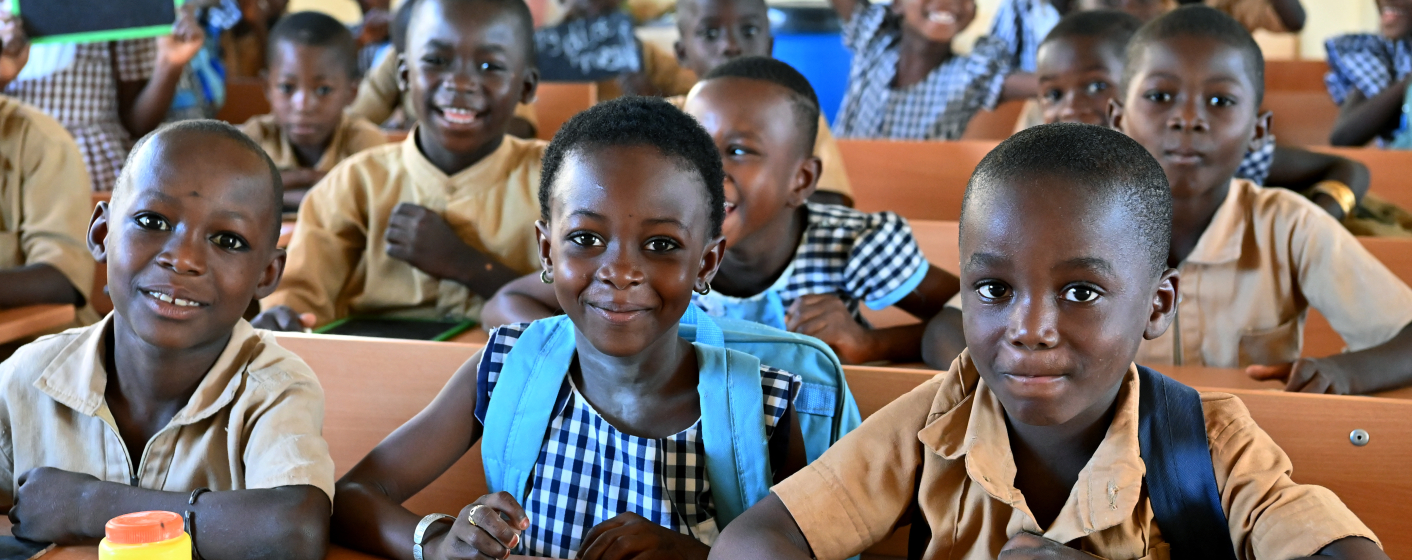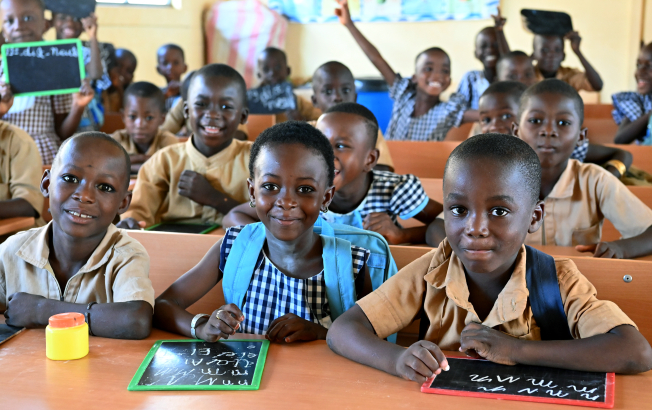Education in Côte d'Ivoire: "The Transformation of Resources into Results Remains Problematic"
In terms of education, Côte d'Ivoire has made notable progress but still suffers from a low level of investment. An analysis by the International Institute for Educational Planning (IIEP-UNESCO Dakar) highlights both the achievements and the persistent challenges.
Has the steady growth in Côte d'Ivoire in recent years and the introduction of compulsory schooling for 6-16-year-olds improved access to education, the quality of learning, and integration into the job market? Conducted as part of Côte d'Ivoire's development of a new education action plan, an IIEP-UNESCO Dakar analysis covering the period 2014-2021 delivers its conclusions.
Limited Investments in Education
This in-depth look at the Ivorian education system shows how, with an average annual growth of 7.7%, Côte d'Ivoire's maintenance of its position as a regional economic hub during 2014-2021 positively impacted public education spending, generally on the rise.
However, several issues remain problematic. Firstly, the funds allocated to education have increased more slowly than overall public expenditures. Additionally, most of these funds were used to pay National Education personnel. This situation leaves very little room for investment, as highlighted by IIEP-UNESCO educational policy analyst and co-author of the study, Oswald Koussihouèdé: "The Ivorian state actually has very little means to transform its system."
Many Children Still Not Enrolled
Although universal schooling cannot be claimed in Côte d'Ivoire, the country has made progress in this area. A key measure during the period was making school compulsory for ages 6 to 16, which helped increase enrollment numbers. However, the number of young people who are out of school or have never attended remains very high, even though it has decreased, and dropouts are frequent.
"The state has embarked on a large-scale movement to build schools, massively recruit teachers, and raise household awareness," says Aristide Toti, a statistician at the Task-Force Education-Training of Côte d'Ivoire. Efforts still need to be made as the number of children outside the system is regularly fueled by high population growth. "About 20% of schooling expenses are lost due to repetition and its corollary, school dropout," estimates Oswald Koussihouèdé.
Learning Conditions Need Improvement
Certain conditions unfavorable to learning prompt some to leave school. For example, less than half of the schools in Côte d'Ivoire are equipped with latrines. Violence in schools leads to absenteeism and dropping out. Strikes and frequent teacher absences also need to be considered. Finally, schooling still weighs heavily on family finances, "which implies the exclusion of the poorest children," note the study's authors.
The consequences on student performance are significant. During the studied period, recent progress in reading and mathematics at the start of schooling is offset by low levels at the end of schooling, especially in mathematics. Some skills are even less well-mastered than before, such as reading a text aloud or knowing the sounds of letters.
Majority of Workers in the Informal Sector
The study also looks at access to the job market. About six out of ten Ivorians (59%) of working age have a job, with an overwhelming majority in the informal sector. For these often uneducated individuals, the chances of finding a decently paid job are slim.
For those with higher education levels or technical and vocational training, the chances of getting a formal sector job and earning a better living are greater.
As for women, they continue to be more often unemployed than men. When they work, their wages are lower, and they are more frequently forced to accept vulnerable jobs.
In conclusion, while Côte d'Ivoire has made numerous efforts to improve its education system, Oswald Koussihouèdé states, "the transformation of resources into results remains problematic." Many children are still out of the education system. Among those who attend school, many still do not have the required knowledge when they finish their education.



